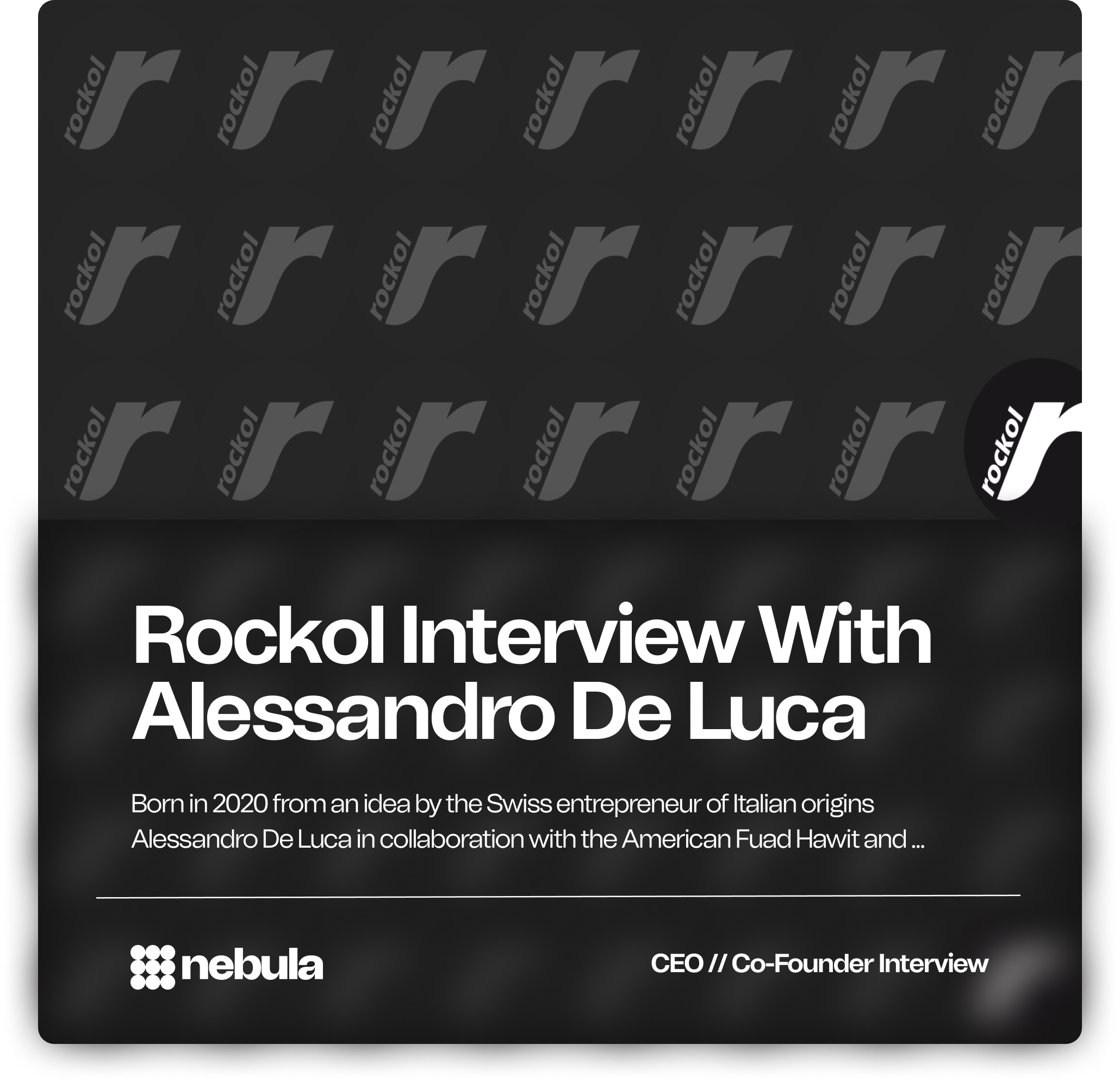Born in 2020 from an idea by the Swiss entrepreneur of Italian origins Alessandro De Luca in collaboration with the American Fuad Hawit and Startup Incubators, Nebula presents itself as a marketplace on Web3 that allows the public to invest in musical works. More precisely, on portions of royalties, which are transferred in a simple and secure way using blockchain technology. Last January, the company signed an agreement with the independent label Empire (the latter also became a shareholder of Nebula) which materialized in the first instance on the occasion of the launch of a new Money Man EP: the work, presented officially at the last SXSW in Austin, Texas, saw Nebula sell 25,000 tokens linked to one of the songs on the album, “Drums”, created by the artist together with Babyface Ray, in less than an hour. Several more such initiatives will be announced in the weeks and months ahead.
Music is art, and we are the gallery,” summarizes the company’s claim, which Alessandro detailed to Rockol. “I have a background in economics. I graduated from Zurich in Business Administration and then began working for Hewlett-Packard as a business developer, focusing on business models,” he explains. “I enjoyed the job, but I also wanted to explore other avenues. Thus, I enrolled in a filmmaking course. During my studies, I realized the challenges of sustaining oneself solely from copyright revenues. This prompted me to question if there might be a better way to structure the business. After all, there’s widespread interest in listening to music and watching films. Consequently, I reasoned that the issue isn’t the absence of demand. If music is being consumed freely today, what might be the better option for consumers? I began contemplating a shift in the nature of this relationship. Instead of perceiving music as a consumer commodity destined to depreciate, I believed it was time to challenge this norm. Music is intertwined with memories; it’s the soundtrack of our lives. Its value should, ideally, appreciate over time. By viewing it as an investment, one could truly appreciate its worth.”
“We have built something solid. Something destined to stay, not made simply to chase the hype.”
Hence the idea of Nebula, which germinated in 2015 but came to fruition only four years later, and then developed in the midst of the pandemic. “I found a business partner in India, who deals with the technical part and product development, who in turn introduced me to the third partner, Fuad Hawit, resident in Los Angeles, belonging to a family of Silicon Valley entrepreneurs who, in addition to having experience in platform development, has also strong links with the music industry”, continues Alessandro. “From a technological point of view we are very advanced: in addition to the web platform we also have a native iOS and Android app, in addition to the native CMS/customer admin portal where we store the contracts”.
There was a lot of talk about Web3 last year, but recent developments – the mass layoffs at Meta, the cancellation of the division linked to the metaverse by Disney – have cooled the markets’ enthusiasm towards digital realities. “I have always considered the plans in the long term, therefore – obviously – I believe that the Web3 segment is still destined to grow, despite the economic difficulties of this period”, comments Alessandro, who appears very calm about future prospects: “We have built something solid. Something destined to stay, not made simply to chase the hype. Our goal is to establish a strong connection with the community with something that didn’t exist before.”
“We don’t take anything away from anyone. We offer the chance to generate new income.”
Regarding, however, the relationship with the creative side of the business, Alessandro is aware of having entered a complex and very stratified ecosystem. “Experience has taught me that when you do something innovative, not everyone is happy,” he says: “There are legitimate vested interests, and there is a desire to protect pre-existing businesses. Our intent, however, is not to pose a threat to anyone. What we offer is added value. Music, until today, was not seen as an investment. We don’t take anything away from anyone. We offer the chance to generate new income.”
In this sense, will it be possible to see Nebula – currently in contact with both independent artists and record companies, both major and independent – interact with Italian labels and management? “I love Italian music, I grew up with it,” concludes Alessandro: “With Nebula, in the coming years, the project is to build a large international platform where local products can be offered to a global audience. A way, also for the Italian music industry, to broaden its range of action and be discovered in other markets”.
The original interview is in Italian and can be found here.

